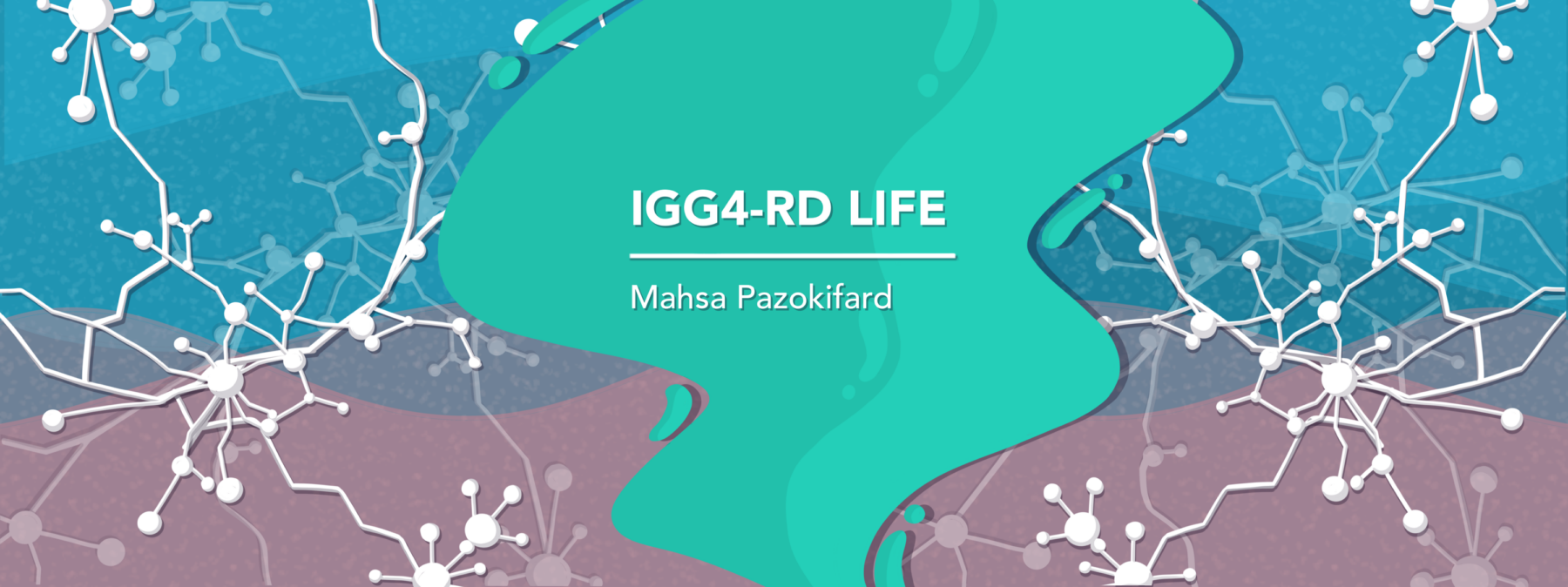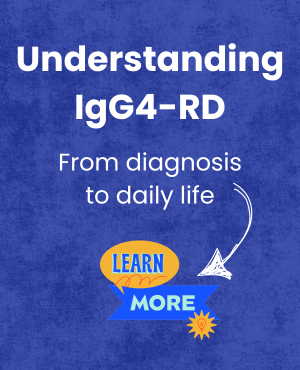What made my IgG4-related disease so difficult to diagnose?
As a young woman who's seronegative, I faced many hurdles
Written by |

After countless appointments, I still clung to a sliver of hope that my new doctors would be able to put a name to the various symptoms I was experiencing. But despite being riddled with pain, I was told that all of my scans and blood work looked normal. “There’s nothing wrong with you,” one physician said.
I was losing hope that anyone would be able to figure out my case.
But a few days later, I was back in the emergency room. This time, after being seen and questioned by what seemed like 40 medical professionals, an ocular surgeon was sent my way. He actually saw all the inflamed glands on my PET and CT scans.
He asked me, “What do you think you have?” It was the first time a doctor had asked me that. I looked up at him with teary, swollen eyes and choked out the words, “Mikulicz’s disease.” He carefully noted it for the pathologists, with a subtle, yet validating glint of acknowledgment in his eyes. That marked the beginning of a turning point in my journey.
Within two weeks, I received several diagnoses, including Mikulicz’s, an IgG4-related disease (IgG4-RD). It felt like a certificate of proof that I wasn’t crazy and that my symptoms were real.
Diagnostic challenges
So what made my case so difficult to diagnose?
Mainly, I am seronegative, meaning I don’t have elevated levels of IgG4 antibodies in my blood. Being seronegative puts a rare patient like me into an even rarer and often misunderstood category. Having normal IgG4 antibody levels makes it incredibly challenging for doctors to diagnose those of us with IgG4-RD, often resulting in years of misdiagnoses and delayed treatment. But seronegative status aside, IgG4-RD is rare, and few medical professionals are familiar with it.
In addition, current research suggests that older men are most often affected by IgG4-RD — making it even more challenging for young, female patients like me to obtain a proper diagnosis and treatment. Let’s talk about this issue.
While seeking a diagnosis, I often heard the same discouraging statement: “You’re too young for this disease, and even if you weren’t, you aren’t male. We read that only older men get this disease.”
Although studies have shown that IgG4-RD is more common in men, that doesn’t mean it only affects men.
I also can’t help but wonder if gender bias in medical research has played a role in IgG4-RD studies.
According to a 2022 article published in Women’s Health Reports, “Historically, medical studies have excluded female participants and research data have been collected from males and generalized to females. The gender gap in medical research, alongside overarching misogyny, results in real-life disadvantages for female patients.” Those consequences could include women not being properly diagnosed and treated.
If more men with IgG4-RD have been studied than women, how might that affect the current data about affected demographics? This question has fueled my fire to advocate for women and children living with IgG4-RD.
Communicating with your healthcare team
Early diagnosis and intervention are key to preventing irreversible organ damage in IgG4-RD. For that reason, I urge patients to speak up with your healthcare providers. Share any symptoms you’re experiencing and any research you’ve found that might help point your doctor toward a diagnosis.
If you’ve been diagnosed with IgG4-RD, you can help professionals learn more about the disease by sharing information about your symptoms, triggers, organ involvement, and which treatments work for you.
I always encourage our patient community to participate in social and online support groups, market research studies, clinical studies, and patient conferences and symposia. The more we share about our lived experiences, the more knowledgeable medical professionals will be about our rare disease — and the quicker they’ll be able to diagnose and treat patients in the future.
Note: IgG4-RD News is strictly a news and information website about the disease. It does not provide medical advice, diagnosis, or treatment. This content is not intended to be a substitute for professional medical advice, diagnosis, or treatment. Always seek the advice of your physician or other qualified health provider with any questions you may have regarding a medical condition. Never disregard professional medical advice or delay in seeking it because of something you have read on this website. The opinions expressed in this column are not those of IgG4-RD News or its parent company, Bionews, and are intended to spark discussion about issues pertaining to IgG4-RD.








Leave a comment
Fill in the required fields to post. Your email address will not be published.